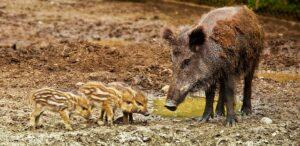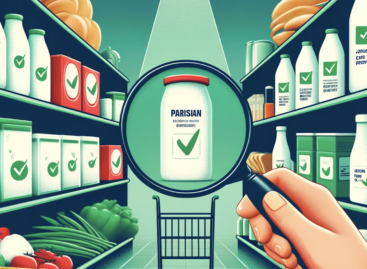An extraordinary result in the defense against ASP: restrictions are eased
The size of the African swine fever (ASP) risk areas in Hungary decreased significantly, which made it possible to ease the epidemiological restrictions. This extraordinary result also proves that the measures taken by the animal health authority to eliminate ASP are effective. By relaxing the restrictions, the commercial opportunities of the farmers and food businesses of the affected areas will be significantly expanded.

(Photo: Pixabay)
At its last meeting, the European Commission’s Expert Committee on Animal Health (PAFF) heard and unanimously accepted Hungary’s proposal to reduce ASP infected areas. As a result of the decision, the size of the risk areas in the counties of Bács-Kiskun, Békés, Csongrád-Csanád and Jász-Nagykun-Szolnok was significantly reduced.
As a precursor to the proposal, the Hungarian ASP Expert Action Group reviewed the epidemic situation in Hungary
In the process, it was established that thanks to the measures introduced, the rate of spread of the virus slowed down to a large extent, and in a significant part of the infected area it receded to such an extent that the presence of ASP there can no longer be verified. The Hungarian proposal was presented in a study supported by test results by the representatives of our country to EU and member state experts, who unanimously accepted it. Thanks to this, all high-risk areas in the Csongrád-Csanád county were eliminated, and a significant part of the infected area in the Békés and Jász-Nagykun-Szolnok counties was reclassified as a high-risk area. At the same time, a significant part of the previously high-risk area of the counties of Jász-Nagykun-Szolnok and Bács-Kiskun has become medium risk.
The change is extremely favorable for Hungarian livestock breeders, food producers and game farmers
In the medium-risk area, domestic pigs can be marketed, exported to another member state, and wild boar carcasses can be used and sold without restrictions from the ASP point of view. In the future, domestic pigs from areas reclassified as high risk can be transported domestically without restrictions, as well as the possibility of processing and using wild boars domestically instead of the previous disposal. The modification of the risk classification of the areas can be tracked on the interactive map available on the thematic page of Nébih.
Nébih
Related news
A restaurant in the second district was closed with immediate effect due to serious hygiene problems
The Hungarian National Food Chain Safety Office (Nébih) has immediately…
Read more >Nébih experts examined the cheapest foods
In order to protect consumers, the National Food Chain Safety…
Read more >Nébih revealed serious food safety and hygiene deficiencies in a restaurant in the capital
The inspectors of the National Food Chain Safety Office (Nébih)…
Read more >Related news
The latest issue of Trade magazin is out now!
The digital version is available with more content once again…
Read more >FAO: global food prices increased for the second month in April on a monthly basis
In April, global food prices rose for the second month…
Read more >Beauty care travels at breakneck speed
Beauty care is one of the fastest growing markets in…
Read more >







